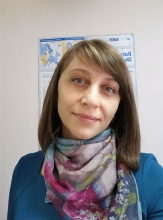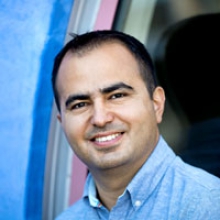Summary
Dissemination Conferences are high profile events or conferences not organized by the COST Action. Action MC Members or their substitutes from COST or Cooperation participant countries shall attend these meetings for the purpose of disseminating the Action’s achievements. In CA18123, participation in Disseminations Conferences is proposed in the form of Dissemination Conference Grants (DCG).
The COST Action CA18123 has five working groups. Conferences for which the grant is provided can contribute to the specific related tasks of the working groups, particularly tasks related to WG 2, 3, and 4.
Potential applicants that are interested to submit an application should read the Dissemination Conference Grants guidelines for more details about eligibility, criteria for evaluation, financial support, criteria for reimbursement and how to apply.
Information for Dissemination Conference Grants guidelines:
![]() ca18123_disseminationgrants_guidelines_vs32022.pdf
ca18123_disseminationgrants_guidelines_vs32022.pdf
Further details can be consulted at the COST Annotated Rules: https://www.cost.eu/funding/how-to-get-funding/documents-and-guidelines/
Contacts
Dissemination Conference Grants Coordinator: Eleni Meletiadou (elenim@outlook.com).
This Call is CLOSED
CALL
The COST Action CA18123 launches its first call for Dissemination Conference Grants (DCG). Dissemination Conference Grants are funded as part of the Action CA 18123. The research network itself is funded by COST European Cooperation in Science and Technology.
The COST Action CA18123 has five working groups. Conferences for which the grant is provided can contribute to the specific related tasks of the working groups, particularly tasks related to WG 2, 3, and 4.
The Congress approved by the Management Committee to be fundable by Dissemination Conference Grants for the 2nd Period is the 8th International Congress of Educational Sciences and Development: https://en.educationcongress8.com/presentacion-de-trabajos
This call will fund up to two Grants up to EUR 1500 in the format of presentations within a joint symposium.
Potential applicants that are interested to submit an application should read the Dissemination Conference Grants guidelines for more details about eligibility, criteria for evaluation, financial support, criteria for reimbursement and how to apply:
![]() ca18123_disseminationgrants_guidelines_vs32022.pdf
ca18123_disseminationgrants_guidelines_vs32022.pdf
Deadlines
During the 2nd Grant Period, the deadlines will apply as following:
- Application period: 1st - 30th September 2020
- Evaluation 5th - 11th October 2020
Documents for interested applicants:
![]() DCG template for the Proposal
DCG template for the Proposal![]() DCG for the Scientific Report
DCG for the Scientific Report![]() DCG for the Website Summary
DCG for the Website Summary
This Call is CLOSED
CALL
The COST Action CA18123 launches its call for Dissemination Conference Grants (DMG) within the 3rd Grant period. Dissemination Conference Grants are funded as part of the Action CA 18123. The research network itself is funded by the European Cooperation in Science and Technology (COST).
The COST Action CA18123 has five working groups. Conferences for which the grant is provided can contribute to the specific related tasks of the working groups, particularly tasks related to WG 2, 3, and 4.
The congresses approved by the Management Committee to be fundable by Dissemination Conference Grants for the 3rd Period are the Estonian IPSCAN congress 2022: https://www.ispcan.org/estonia-2022-home-page/?v=402f03a963ba and the European Social Services Conference 2022: https://essc-eu.org/
This call will fund up to 2,000 euros per grant for this face-to-face conference in the format of presentations within a joint symposium or 500 euros for a virtual conference.
Potential applicants that are interested to submit an application should read the Dissemination Conference Grants guidelines for more details about eligibility, criteria for evaluation, financial support, criteria for reimbursement and how to apply:
![]() ca18123_disseminationgrants_guidelines_vs32022.pdf
ca18123_disseminationgrants_guidelines_vs32022.pdf
Deadlines
During the 3rd Grant Period, the deadlines will apply as follows:
- Application period: 13th April - 27th April 2022
- Evaluation period: 28th April - 12th May 2022
Documents for interested applicants:
This Call is CLOSED
CALL
The COST Action CA18123 launches its first call for Dissemination Conference Grants (DMG) within the 4th Grant period. Dissemination Conference Grants are funded as part of the Action CA18123. The research network itself is funded by the European Cooperation in Science and Technology (COST).
The COST Action CA18123 has five working groups. The conferences for which the grant is provided can contribute to the specific related tasks of the working groups particularly tasks related to WG 2, 3, and 4.
The congresses approved by the Management Committee to be fundable by Dissemination Conference Grants for the 4th Grant Period is the online International Congress on Evidence-based Parenting Support 2023.
This call will fund up to 500 euros per grant for this virtual conference in the format of presentations within a joint symposium.
Potential applicants that are interested to submit an application should read the Dissemination Conference Grants guidelines for more details about eligibility, criteria for evaluation, financial support, criteria for reimbursement and how to apply:
![]() ca18123_disseminationgrants_guidelines_vs32022.pdf
ca18123_disseminationgrants_guidelines_vs32022.pdf
Deadlines
During the 4th Grant Period, the deadlines will apply as follows:
- Application period: 29th May- 12th June 2023
- Evaluation period: 13th June - 20th June 2023
Documents for interested applicants:

Child Protection for the Most Vulnerable Children and Families: The ISPCAN International Congress on Child Abuse and Neglect 2022
Name and surname: Harriet Churchill
Home institution: University of Sheffield, UK
Field of research interest: Family support, Parenting support, Social equality, Social policies for children and families, Politics of family support and family policy
Name of the conference/congress: Child Protection for the Most Vulnerable Children and Families: The ISPCAN International Congress on Child Abuse and Neglect 2022
Organizers: International Society for the Prevention of Child Abuse & Neglect (ISPCAN).
Website: https://estonia2022.exordo.com
A quote: The Congress programme was wide-ranging with presentations and posters providing valuable information about internationally leading research and innovations in the areas of child abuse and neglect prevention and interventions as well as parenting and family support. The EurofamNet symposium of presentations disseminated our valuable contribution to these areas through our conceptual and evidence-based reviews and frameworks.
The presentation:
Conceptualising family and parenting support policy and provision: A framework informed by a European scoping review
Children’s rights to protection, provision and participation across European countries demands comprehensive and collaborative systems of support, safeguards and services. In the context of the COVID-19 pandemic and the resulting heightened needs and widening inequalities, societal commitment to sustaining and enhancing economic and social support for children, parents, families and communities is a pressing imperative. Focusing on significance and potential of family support policy, provision and practice, this presentation will: (1) present a new conceptual synthesis that provides a multi-level and inter-disciplinary framework for understanding, developing and evaluating family support policy, provision and practice; and (2) envisage a holistic and collaborative framework for family support policy, provision and practice informed by children’s rights, gender equality and social rights standpoints. In achieving these aims, the presentation will detail the key features of a major scoping study of family support literatures, policies and initiatives in the European context; and draw out the key findings of the scoping study for improving our conceptualisation and development of family support policy, provision and practice. The presentation will close setting out the key lessons and issues for those involved in advancing the role, scope and quality of family support initiatives in order to better safeguard and promote child welfare.
Relevant conference themes: (1) Protection, policy and legislation in country and across borders; (2) Evidence-based interventions
Presenters / Authors:
Dr Harriet Churchill, Lecturer, Department of Sociological Studies, University of Sheffield, UK. h.churchill@sheffield.ac.uk
Dr Carmel Devaney, Lecturer, School of Political Science and Sociology, National University of Ireland, Ireland. carmel.devaney@nuigalway.ie
Professor Angela Abela, Professor, Faculty of Social Wellbeing, University of Malta, Malta. angela.abela@um.edu.mt

Child Protection for the Most Vulnerable Children and Families The ISPCAN International Congress on Child Abuse and Neglect 2022
Name and surname: Sonia Byrne
Home institution: University of La Laguna (Spain) Department of Educational and Developmental Psychology
Field of research interest: Positive parenting; Family support; Evidence-based practices; Programme evaluation
Name of the conference/congress: Child Protection for the Most Vulnerable Children and Families The ISPCAN International Congress on Child Abuse and Neglect 2022
Organizers: International Society for the Prevention of Child Abuse & Neglect (ISPCAN)
Website: https://estonia2022.exordo.com
A quote: Symposia ”Advancing a Family Support Agenda at European Level: Contributions from the European Family Support Network”; includes presentation Adoption of evidence-based practice approach in the child and family care public system in Europe: A comparative survey study. The presentation addresses the need for incorporation of evidence-based practices (EBP) into services and professional practice in family support to empirically examining the degree of adoption at national, service and professional levels of the EBP approach in a sample of 19 countries.
The presentation:
https://estonia2022.exordo.com/
Advancing a Family Support Agenda at European Level: Contributions from the European Family Support Network; has been accepted for Symposia presentation

IPSCAN 2022 Congress. Child protection for the most vulnerable children and families
Name and surname: Ana Catarina Canário
Home institution: Faculty of Psychology and Education Sciences of the University of Porto
Field of research interest: Parenting interventions and child development.
Name of the conference/congress: IPSCAN 2022 Congress. Child protection for the most vulnerable children and families
Organizers: The International Society for the Prevention of Child Abuse and Neglect (IPSCAN).
Website: https://www.ispcan.org/estonia-home/?v=402f03a963ba
A quote: The conference was very interesting, with several presentations on timely research focusing on the prevention of child abuse and neglect. I felt inspired by the presentations describing new research, policies, and practice regarding a topic of concern. In addition, the conference was an excellent opportunity to network with members of EurofamNet and other researchers working on similar areas of interest.
The presentation:
The symposia “Advancing a Family Support Agenda at European level: Contributions from the Family Support Network” was recorded during the ISPCAN 2022 conference and is available at https://www.youtube.com/watch?v=kBIKRU944xI. The presentation had the purpose of discussing whether online parenting interventions could be suitable for vulnerable families, and addressed the results of a narrative review and also preliminary data from an effectiveness study. The use of information and communication technology (ICT) to deliver parenting and mental health support services to families is not new, but has significantly increased during the Covid-19 pandemic. Despite the many advantages acknowledged regarding the use of ICT in parenting support services (e.g., flexible scheduling and enhanced accessibility), its merit to support vulnerable families (i.e., families going through circumstances where there are risks to the wellbeing of children and families’ members, such as those with low incomes, survivors from domestic violence, going through divorce, or enrolled with child protective services, among others) remains an issue for discussion. This presentation included two studies. The first presented findings from a narrative review by members of the Working Group 3 of the Cost Action EurofamNet (CA18123) to illustrate the diverse ways in which ICT is being used across Europe to provide family support to different populations. In the review, a distinction was made between the use of ICT in professional-led and peer-led support, implementation examples with vulnerable families from across Europe were presented, and potential advantages and disadvantages discussed. The second study presented preliminary findings of a quasi-experimental study comparing different formats (in-person, through videoconference, or in a combination of both) of an evidence-based parenting intervention versus control (i.e., individual professional-led parenting support sessions) for parents referred to parenting support services in community-based settings by the Portuguese child protective services. Results revealed higher scores of depression, anxiety, stress, laxness, and lower levels of positive parenting on parents receiving care-as-usual when compared to those receiving the evidence-based parenting intervention. No differences were found between the formats of delivery of the parenting intervention. The conclusions highlighted that ICT can be particularly useful in family support even when working with vulnerable families. However, several types of ICT-based family support may be less suitable for families at risk of problems and in need of more specialized services. These families might benefit from ICT-based family support, such as videoconferencing, combined with in-person support.

30th European Social Services Conference. Rethinking Recovery. Reshaping Social Services with New Tools
Name and surname: Ninoslava Pećnik
Home institution: University of Zagreb
Field of research interest: parenting support, family support, early childhood development, programme evaluation, evidence-based practices, quality standards
Name of the conference/congress: 30th European Social Services Conference. Rethinking Recovery. Reshaping Social Services with New Tools
Organizers: The European Social Network
Website: https://essc-eu.org/
A quote: Attending this conference has provided a comprehensive overview of the current advances in social services for children and families in Europe and opportunities for discussions about adoption of an evidence-based approach to family support and parenting support as well as opportunities for networking with policy makers and researchers who are engaged in promoting this approach in diverse policy and academic contexts.
The presentation:
https://essc-eu.org/project-forum-2022/#1647005108380-ead01608-1131

IPSCAN 2022 Congress. Child protection for the most vulnerable children and families.
Name and surname: Sofía Baena
Home institution: University Loyola Andalucía
Field of research interest: Positive parenting; Families with children with disabilities; Program evaluation; Family support
Name of the conference/congress: IPSCAN 2022 Congress. Child protection for the most vulnerable children and families.
Organizers: The International Society for the Prevention of Child Abuse and Neglect (ISPCAN)
Website: https://www.ispcan.org/estonia-home/?v=402f03a963ba
A quote: The congress was stimulating and networking enabler
The presentation:

Child Protection for the Most Vulnerable Children and FamiliesThe ISPCAN International Congress on Child Abuse and Neglect 2022
Name and surname: Nevenka Zegarac
Home institution: University of Belgrade Faculty of Political Sciences, Department for Social Work and Social Policy your home institution.
Field of research interest: Areas of interests are related for child’s right and child protection, case management, child abuse and neglect, children on alternative care and deinstitutionalization, family support and family support workforce skills, child trafficking, child labour,
Name of the conference/congress: Child Protection for the Most Vulnerable Children and FamiliesThe ISPCAN International Congress on Child Abuse and Neglect 2022
Organizers: International Society for the Prevention of Child Abuse & Neglect (ISPCAN).
Website: https://estonia2022.exordo.com
A quote: Symposia: 'Advancing a Family Support Agenda at European Level: Contributions from the European Family Support Network', includes presentation Family Support Workforce Skills: In Search of Conceptualization. Skills used in of family support workforce practice are implemented in different national, and system settings and professions. The conceptual assumptions and epistemological frameworks of diversity are a challenge in family support as a unique child-rights and child-protection perspective. Various paradigms of intervention, different sectors and disciplinary involvement indicate the need to systematize and clarify knowledge in the field. More precisely, we need to understand practical aspects of family support interventions related to skills that are generic (core) but also specific (if there is any). Another distinction could be done on the line of professionalization in professionals and paraprofessionals engaged in relevant social sub-systems what is being done within into one of the action work streams of the EU COST EuroFam-Net action
The presentation:
https://estonia2022.exordo.com/
Advancing a Family Support Agenda at European Level: Contributions from the European Family Support Network' has been accepted for Symposia presentation

IPSCAN 2022 Congress. Child protection for the most vulnerable children and families
Name and surname: Lucía Jiménez
Home institution: University of Seville
Field of research interest: Family support, evidence-based practices, quality standards, family preservation, programme evaluation
Name of the conference/congress: IPSCAN 2022 Congress. Child protection for the most vulnerable children and families
Organizers: The International Society for the Prevention of Child Abuse and Neglect (IPSCAN).
Website: https://www.ispcan.org/estonia-home/?v=402f03a963ba
A quote: I found stimulating the exchange with relevant researchers across Europe about family support with a focus in child welfare. I have brought new insights for EurofamNet.
The presentation:

30th European Social Services Conference. Rethinking Recovery. Reshaping Social Services with New Tools
Name and surname: Lucía Jiménez
Home institution: University of Seville
Field of research interest: Family support, evidence-based practices, quality standards, family preservation, programme evaluation
Name of the conference/congress: 30th European Social Services Conference. Rethinking Recovery. Reshaping Social Services with New Tools
Organizers: The European Social Network
Website: https://essc-eu.org/
A quote: It has been stimulating to meet key stakeholders across Europe from Social Services. Attending this conference has been an opportunity to discuss about current challenges and advances from EurofamNet with policy makers, practitioners and researchers.
The presentation:
https://essc-eu.org/project-forum-2022/#1647005108380-ead01608-1131

Content analysis on professional skills in family support work based on international organizations’ webpage resources
Name and surname: Mariana Buciuceanu-Vrabie
Home institution: National Institute for Economic Research, Republic of Moldova
Field of research interest: Sociology of population and demography: social services for vulnerable groups (children, elderly), reconciliation of professional and parental roles, the competitiveness of human capital, labour force, demographical security, active ageing, youth policies
Name of the conference/congress: 8th International Congress of Educational Sciences and Development. Symposium: Evidence-informed family education and support in contemporary Europe. Contributions from the European Family Support Network.
Organizers: Universidad de Granada, Universidade Vigo, Universidade do Minho, U. Porto
Website: https://www.internationaleducationcongress.com/
A quote: The Congress was organized at a high level. The informative support during the conference focused on important multidisciplinary issues.
The presentation:
In the context of rapid socio-demographic and economic changes families need to be supported multidimensional. Quality services and high professional skills during their life course are crucial. The presented study aims to identify the international organizations working in the field and describes and catalogues available evidence on basic professional competencies of family support workforces. In line with this general-purpose, websites of international organizations oriented on families with children and youth in various fields (psychology, social work, health, law etc.) were examined and analyzed using the content analysis method. Based on identification items as a level of organization, organization’s role, sector, target beneficiaries, three interconnected maps have been developed: the map of family/children support international organizations/agencies (46 organizations); the map related to family therapy, occupational therapy, family educators and family support paraprofessionals (12 organizations) and the map related to youth support work (30 organizations). An important component in the content analysis was the identification and overview of listed professional skills promoted by the organizations on their work on family support. The information gained from the content analyses of organizations’ websites highlighted some gaps related to acknowledgement and broad representation of skills used in family support work: most organizations do not present an available plain definition of competency/skills framework listed in general or in a separate document; limited evaluations of skills or references to a standard frame, rarely, some information is limited to the job description; multi-disciplinary approaches of the family support skills are not yet common practice. Implications of findings are discussed in the context of further research of family support, development of a network of organizations in the field, common and separate quality standards of well defined and widely represented professional skills, etc.

Quality Standards for Family Support Programs: A New Proposal
Name and surname: Metin Özdemir
Home institution: Örebro University
Field of research interest: Parent-focused preventive intervention. Program development and evaluation. Research design and advanced statistical methods.
Name of the conference/congress: 8th International Congress of Educational Sciences and Development
Organizers: Universidad de Granada, Universidade Vigo, Universidade do Minho, U. Porto
Website: https://www.internationaleducationcongress.com/
The presentation:
One of the key goals of the European Family Support Network (EurofamNet) is to develop and disseminate a quality standards document. This document aims at identifying the basic characteristics to develop, implement, test, and disseminate high-quality family support programs in the European context. The current presentation focuses on the process of development and key aspects of the proposed EurofamNet Quality Standards Document. The development process of the EurofamNet Quality Standards Document started with an extensive review of the published quality standards documents and the scientific publications focusing on preventive interventions for families and children. The review of these documents focused on identifying the proposed standards for and the characteristics of high-quality programs. A thematic analysis revealed the importance of four phases in conceptualizing standards for family support programs. These are (1) program formulation, (2) program delivery, (3) program evaluation, and (4) dissemination. The EurofamNet Quality Standards Document proposes that the processes and the outcomes of these four phases of the intervention cycle are guided by five fundamental considerations. Actions that are taken and the outcomes of these actions in each of these four phases are (1) responsive, (2) feasible, (3) ethical, (4) reflective, and (5) sustainable.Overall, the EurofamNet Quality Standards Document aims at setting up a set of guiding principles for practitioners and researchers who work with family support programs that are accessible and in line with the latest advances in research and praxis.